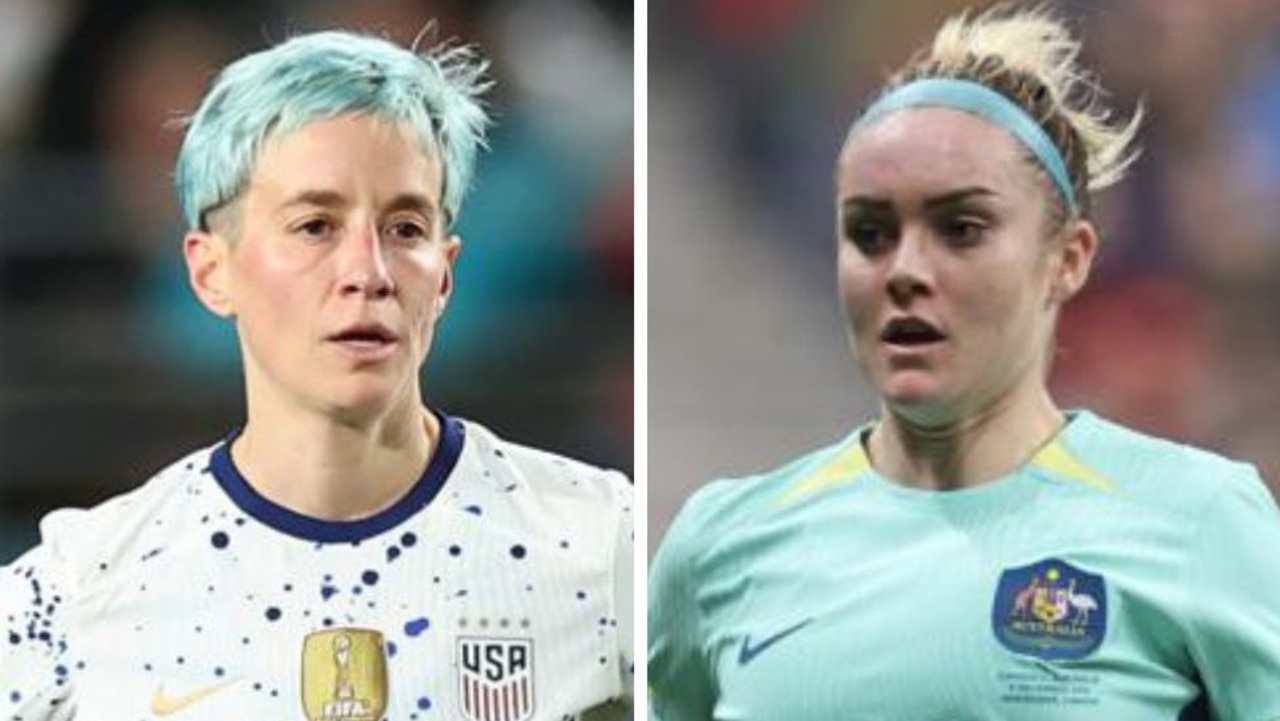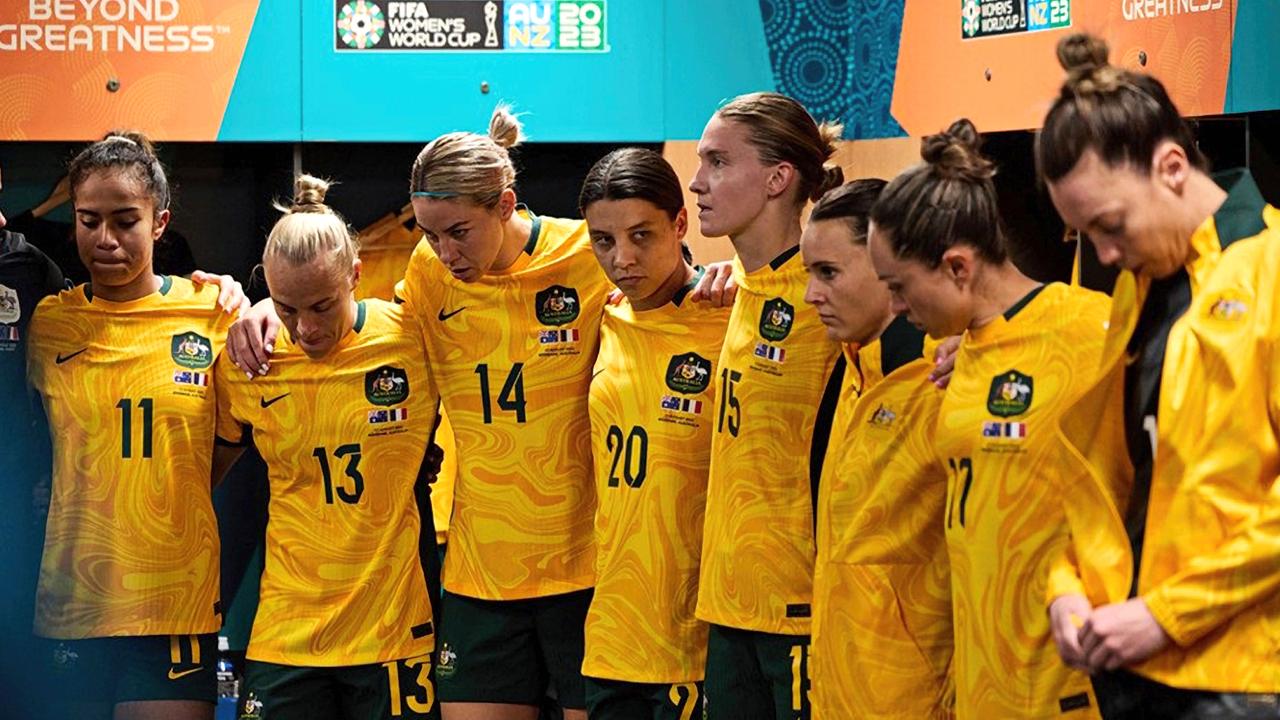Details of player abuse exposes ‘toxic’ truth of women’s FIFA World Cup
New data has detailed the sad extent to which female players are abused on social media following the women’s FIFA World Cup.

One in five players at this year’s Women’s World Cup were targeted by online abuse, according to a study released Monday by FIFA and the FIFPRO global players body.
The findings emerged from analysis of 5.1 million posts and comments relating to 697 players and coaches taking part in the tournament in Australia and New Zealand.
Football’s world governing body FIFA said in a statement 152 players received targeted “discriminatory, abusive or threatening messaging.”
Nearly 50 per cent of the verified online abuse was homophobic, sexual or sexist in nature.
The analysis also found players at the Women’s World Cup were 29 per cent more likely to receive abuse compared to male players at last year’s World Cup in Qatar.
The findings came from analysis of data produced by FIFA’s Social Media Protection Service (SMPS), which screened millions of posts for abusive content using artificial intelligence software, Players were given the option of opting into the SMPS, and under the system, abusive messages — totalling 116,820 — were hidden from intended recipients.
The SMPS data showed that the United States women’s team — who have routinely been targeted for online abuse over the years — were subjected to most abuse during the tournament.
“The abuse that persists online impacts football players all over the world and it cannot be ignored.
“This toxic online environment is a risky place to be in for players and it affects their mental health and wellbeing,” FIFPRO president David Aganzo said.
“Football has a responsibility to protect the players around their workspace.”

FIFA said two players — one from the United States, and one from Argentina, whose identities were not revealed — were targeted above all.
Colombian player Leicy Santos was quoted in the report saying the abuse was harmful to mental health.
“If there is one thing that footballers suffer from the most, apart from losing, it is all the abusive comments - the taunts, the insults,” Santos said.
“Beyond what we do as professional footballers, we are people. Some players are able to put up with the outrageous abuse we receive online, but other players aren’t. It is a very sensitive issue when it comes to mental health.”
FIFA President Gianni Infantino meanwhile vowed no let up in the battle to tackle player abuse.
“There can be no place on social media for those who abuse or threaten anyone, be that in FIFA tournaments or elsewhere,” Infantino said in a statement.
Infantino said that since the SMPS system was first introduced last year, players, teams and officials had been shielded from more than 400,000 abusive comments.
“Discrimination has no place in football and no place in society,” Infantino added.

Matildas defender Ellie Carpenter recently opened up on the ugly abuse she copped on social media after a mistake in Australia’s World Cup semi-final loss.
“You see it everywhere, in different leagues and different sports codes as well,” she said.
“Obviously it’s a problem. And I know a lot of people are trying to make apps and platforms to try and stop abuse and things like that, so that’s good that people are aware of it and are trying to change it.”
More Coverage
Carpenter said online abuse is now part and parcel of being a professional athlete in this day and age and that she has learnt to block it out.
“To be honest, I don’t really read or look into that,” she added. “For me, it doesn’t really affect me at all. I do a job for my team and myself. It (social media abuse) is everywhere these days. And that just shows that the bigger you are or the bigger you get, the more criticism you get.
“I had a great support system around me during that time and just during the whole World Cup really. But it’s just what it is. Like I said the bigger you are the more you get.”





